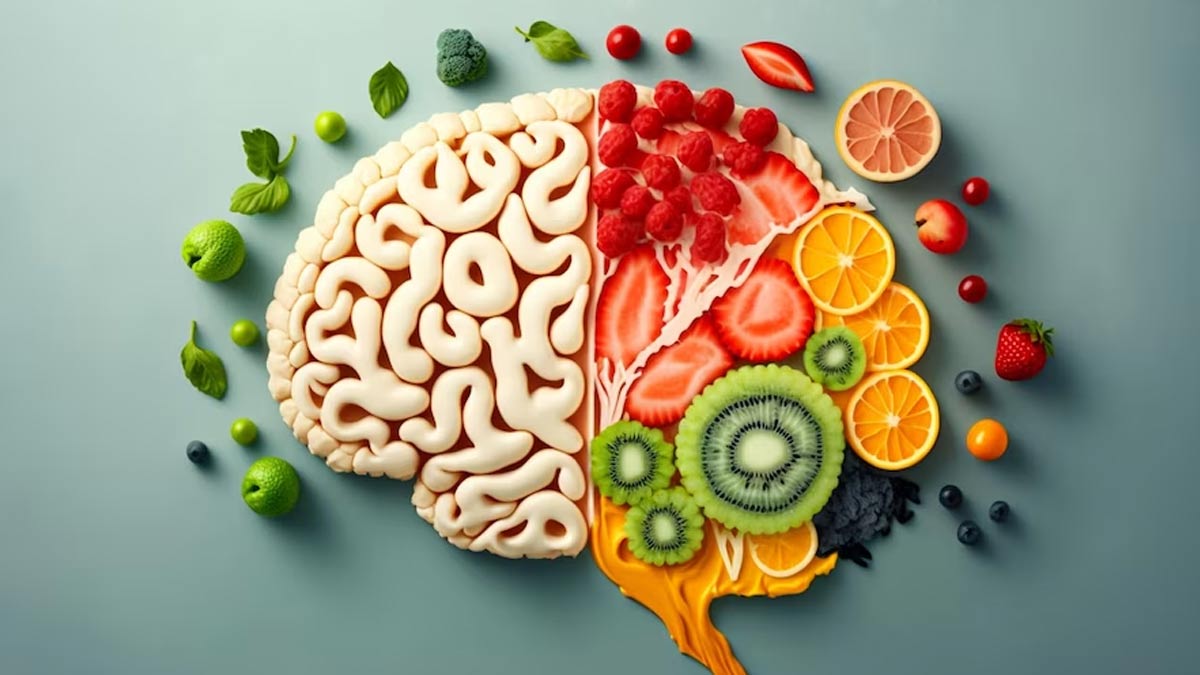
Nutrition plays an important role in boosting your cognitive functions, and it starts with what you eat and the variety of foods you add to your diet. Eating just one type of food will not give your body and brain a boost. A balanced diet should be rich in all the essential nutrients, including vitamins, healthy fats, and minerals. Therefore, if you're looking to boost memory, sharpen focus, and protect yourself against age-related decline, it is important to add different variations of foods to your daily diet. Here are some of the top nutrients to focus on and the foods that provide them.
Table of Content:-
Also Read: Dementia: Warning Signs One Should Never Ignore
Omega-3 Fatty Acids

Omega-3 fatty acids are a group of polyunsaturated fatty acids that are vital for various functions in the body, as per the National Institutes of Health (NIH). Besides promoting heart health, these healthy fats, which are abundant in fatty fish (salmon, trout, and sardines), flaxseeds, chia seeds, and walnuts, are crucial for brain health. They support cognitive function, increase learning, boost memory, and improve cognitive well-being and blood flow in the brain, according to a study published in the Journal Cureus.
Vitamin B Complex
The B-vitamin complex is composed of eight B vitamins, which include:
B1 (Thiamine): Whole grains, beans, nuts, and seeds.
B2 (Riboflavin): Dairy products, lean meats, green leafy vegetables.
B3 (Niacin): Meat, fish, poultry, whole grains, and legumes.
B6 (Pyridoxine): Bananas, avocados, poultry, and fish.
B9 (Folate): Leafy green vegetables, legumes, citrus fruits.
B12 (Cobalamin): Meat, fish, dairy products, and fortified foods.
The brain is the most energy-hungry organ in the body, requiring 20% of our energy, so B vitamins are crucial for its function, according to a 2016 study published in the journal Nutrients, which adds that each B vitamin has various roles in supporting brain functions:
- Thiamine helps build fatty acids, steroids, and neurotransmitters.
- Riboflavin is crucial for many other B vitamins and heme proteins.
- Niacin provides energy, protects cells, and regulates hormones.
- Pantothenic acid helps build brain cells and neurotransmitters.
- Vitamin B6 builds neurotransmitters and regulates gene expression.
- Biotin regulates glucose and insulin.
- Folate and B12 work together to build DNA and repair cells.
Deficiencies in any of these B vitamins can lead to neurological and psychiatric problems, the study shares further.
Magnesium

Eating magnesium-rich foods is strongly linked with improved brain health and a reduced risk of neurological disorders like migraines, chronic pain, epilepsy,and stroke, along with co-occurring anxiety and depression, according to a 2018 study published in the journal Nutrients.
The Recommended Dietary Allowance (RDA) of magnesium for adults aged 19–51 is 400–420 mg daily for men and 310–320 mg for women, whereas pregnant women require about 50–360 mg daily, as per the United States Harvard T.H. Chan School of Public Health. Magnesium is commonly found in nuts, seeds, whole grains, leafy green vegetables, and legumes.
Also Read: Magnesium Deficiency: Warning Signs Of Low Magnesium Levels
Vitamin D
Vitamin D, or the Sunshine Vitamin, is not just good for your bones but also promotes brain health. It gives your brain a triple boost by nourishing brain cells, assisting them in sending messages to each other, and reducing inflammation.
Higher levels of vitamin D in the brain are also linked to improved cognitive function in older adults, according to a study published in Alzheimer's and Dementia: The Journal of the Alzheimer's Association. Researchers found that people with more vitamin D in their brains were 25–33% less likely to have dementia or mild cognitive impairment compared to those with lower levels. However, the study didn't find a direct connection between brain vitamin D and the brain damage associated with dementia, like plaques and tangles. More research is needed to understand exactly how vitamin D protects the brain from cognitive decline.
To increase your vitamin D levels, you can add citrus fruits, like oranges, lemons, grapefruits, strawberries, kiwi, bell peppers, and tomatoes, to your diet.
Choline

Choline has brain-boosting properties that help build key brain chemicals for memory and thinking, strengthen cell walls, and even support its overall development. Found in foods like egg yolks, soy beef, chicken, veal, turkey liver, and lettuce, it helps your brain and nervous system regulate memory, mood, and muscle control, along with other functions, according to the National Institute of Health's Office of Dietary Supplements (NIH).
For adults, men need 550 mg of choline per day, while women need 425mg, as per the health body, which also states that during pregnancy and breastfeeding, these needs increase slightly to 450mg and 550 mg, respectively.
Conclusion
Nutrients play a vital role in supporting your brain health and preventing age-related cognitive decline. Several studies have suggested that a combination of vitamins, minerals, and healthy fats helps boost memory, learning, and concentration in people. Additionally, these nutrients also help promote heart, digestive, and liver health.
Also watch this video
How we keep this article up to date:
We work with experts and keep a close eye on the latest in health and wellness. Whenever there is a new research or helpful information, we update our articles with accurate and useful advice.
Current Version